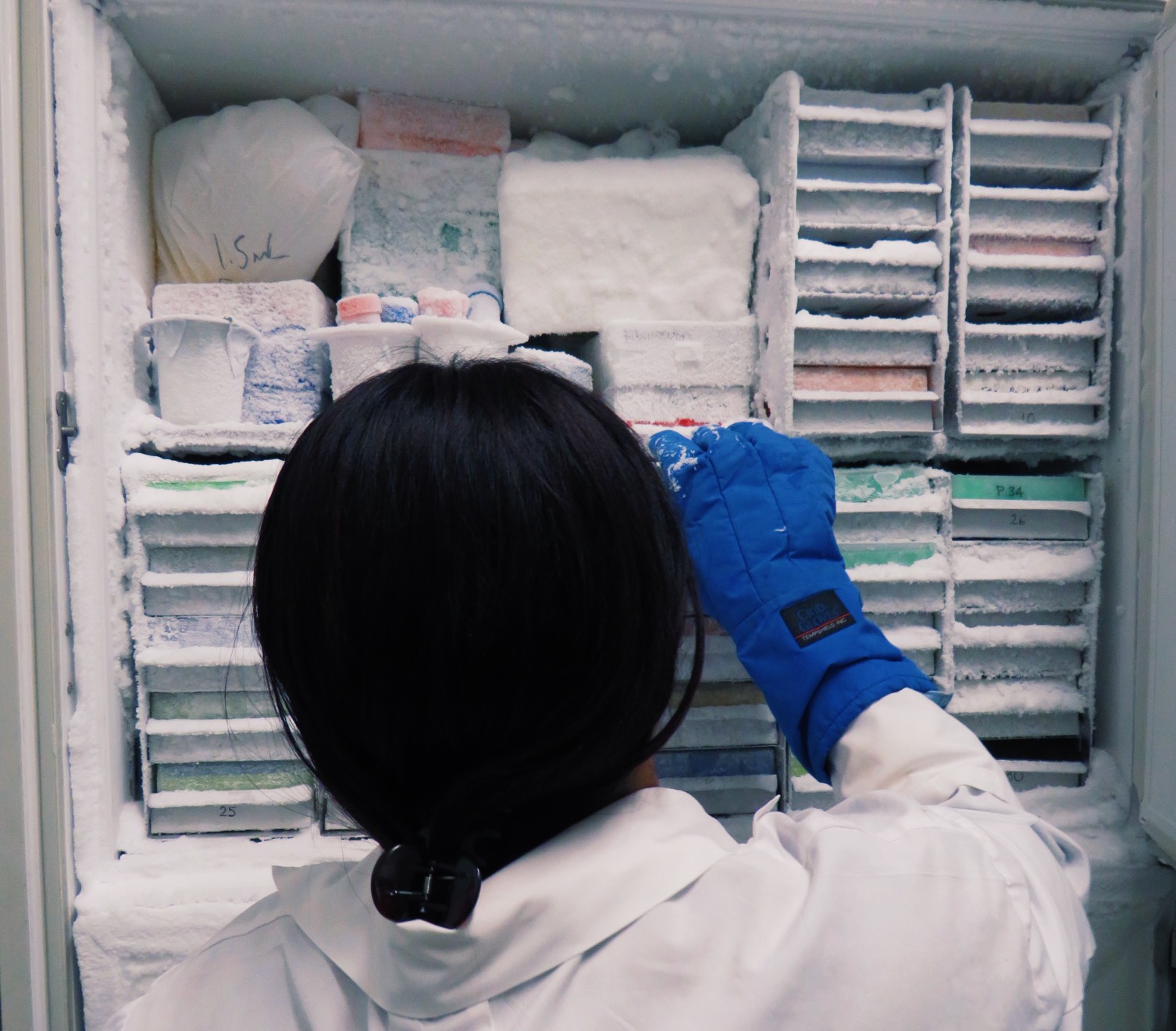
If you spend time in the Reinhardt Laboratory, you will likely see members of the lab reach into the ultra-low freezers to access biomedical samples needed for their work. What you wouldn’t notice is that the freezer is several degrees warmer than it was in the past. In an effort to reduce the environmental impact of their research as well as the strain on their equipment, Dieter Reinhardt’s team raised the temperature of their freezers from the standard -80 degrees Celsius.
While ultra-low temperature freezers are crucial to preserving tissues, enzymes, antibodies, and other biological research samples, often the temperature is chosen based on convention rather than necessity.
Despite these machines being dubbed “-80 freezers”, there is no scientific reason behind that number when it comes to maintaining the quality and safety of samples. What’s more, increasing a freezer’s temperature from -80 C to -70 C or even -65 C can cut energy use by up to 30 per cent. With hundreds of ultra-low temperature freezers at McGill, this would be no small change in terms of the University’s total energy consumption and the associated financial savings.
“Compressors have to work very hard to maintain these ultra-low temperatures,” said Reinhardt, PhD, and Canada Research Chair Tier 1 Laureate in Cell-Matrix Biology. “This requires a lot of electricity, but it’s also hard on the compressors and will shorten the lifespan of your equipment, which is expensive to repair and replace. Increasing the temperature by just a few degrees can add years to this equipment and decrease how often you have to defrost it.”
How cold is cold enough?
The answer isn’t quite as simple as one-temperature-fits-all. “Experience has taught me that for my reagents, there’s not too much difference between -80 C and -65 C, which is what we’re using now,” Reinhardt said. “But if you’re storing lots of messenger RNA, for example, your freezer might need to be colder because these reagents are the most sensitive to degradation.”
For researchers working with samples that are difficult to acquire or take years to cultivate, the hesitation to change the temperature of their cold storage is understandable. This is why lab users around the world are working together to address this uncertainty by sharing their findings on how well specific reagents keep when stored in less cold – but still very, very cold – temperatures. Campaigns such as the “Just Call Me Ultra-Low” initiative, led by longtime independent sustainable research consultant Allen Doyle, are also encouraging scientists not to associate a specific temperature with their freezers.
Turning up efforts… and temperatures
This movement isn’t novel on McGill campuses either. In 2011, researchers in the Faculty of Medicine received support from the Sustainability Projects Fund (SPF) for a Green Biobanking project, which helped labs implement a safe and effective technique for storing DNA samples at room temperature as an alternative to long-term freezer storage.
“The reality is probably 80 to 90 per cent of the typical items stored in an ultra-low freezer are not being actively used and may never be,” Reinhardt said. “Since it takes so long to generate sophisticated reagents, you don’t just get rid of the unused materials. You store them because they could very well be used in future experiments.” As well as minimizing the energy used to keep research ‘leftovers’, “it’s very important to have an accurate inventory of what is in the freezer and periodically review it,” he added, to avoid losing track of samples due to high user turnover in the lab.
These sustainable lab practices and others are all steps that lab users can take as part of the International Freezer Challenge. This year, McGill is even offering its own prizes for labs that participate in the free competition, which has helped save more than 24 million kWh of energy worldwide since its creation six years ago.
Sign your lab up for the International Freezer Challenge and find McGill-specific resources and tips for how to take action on the Office of Sustainability website.
